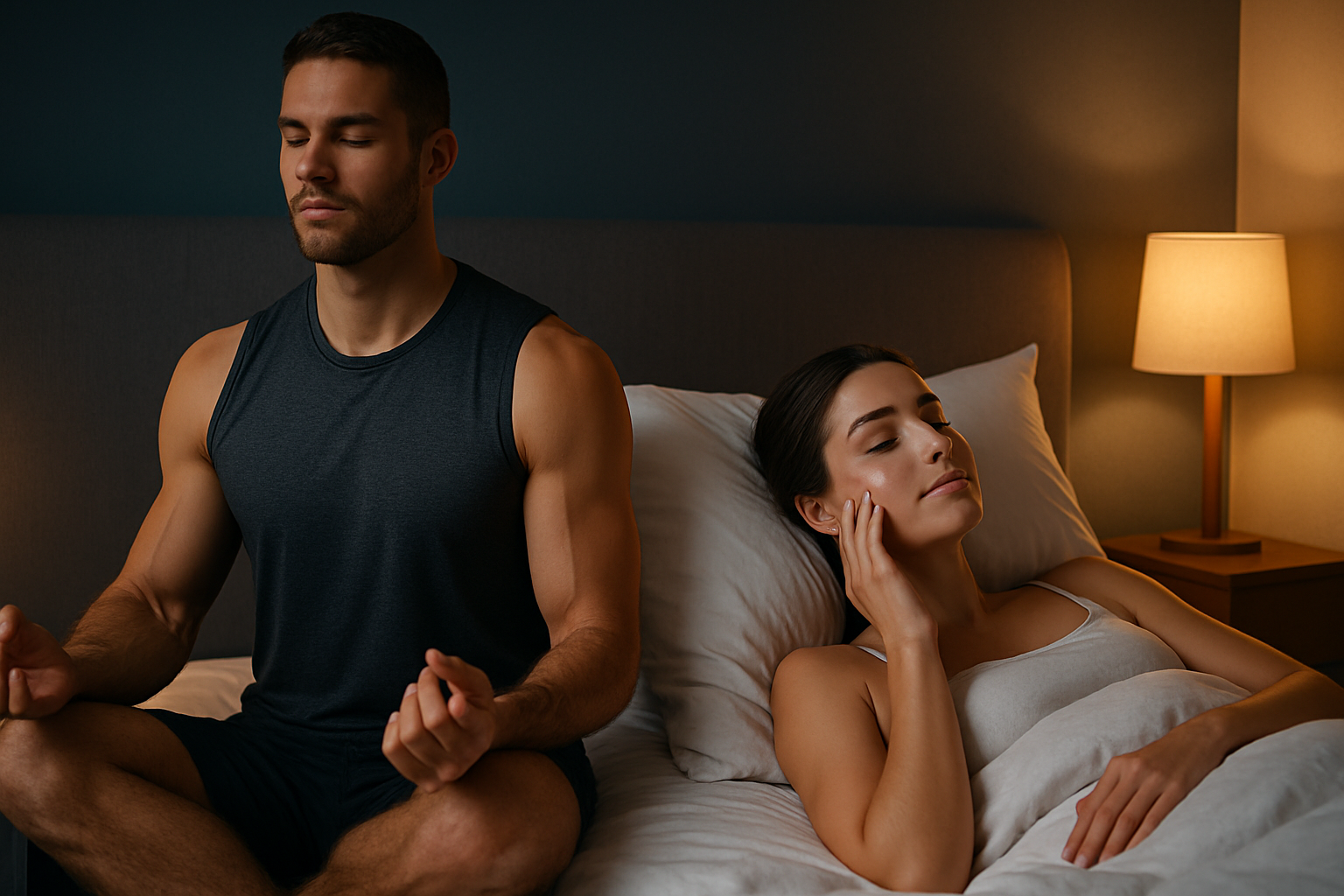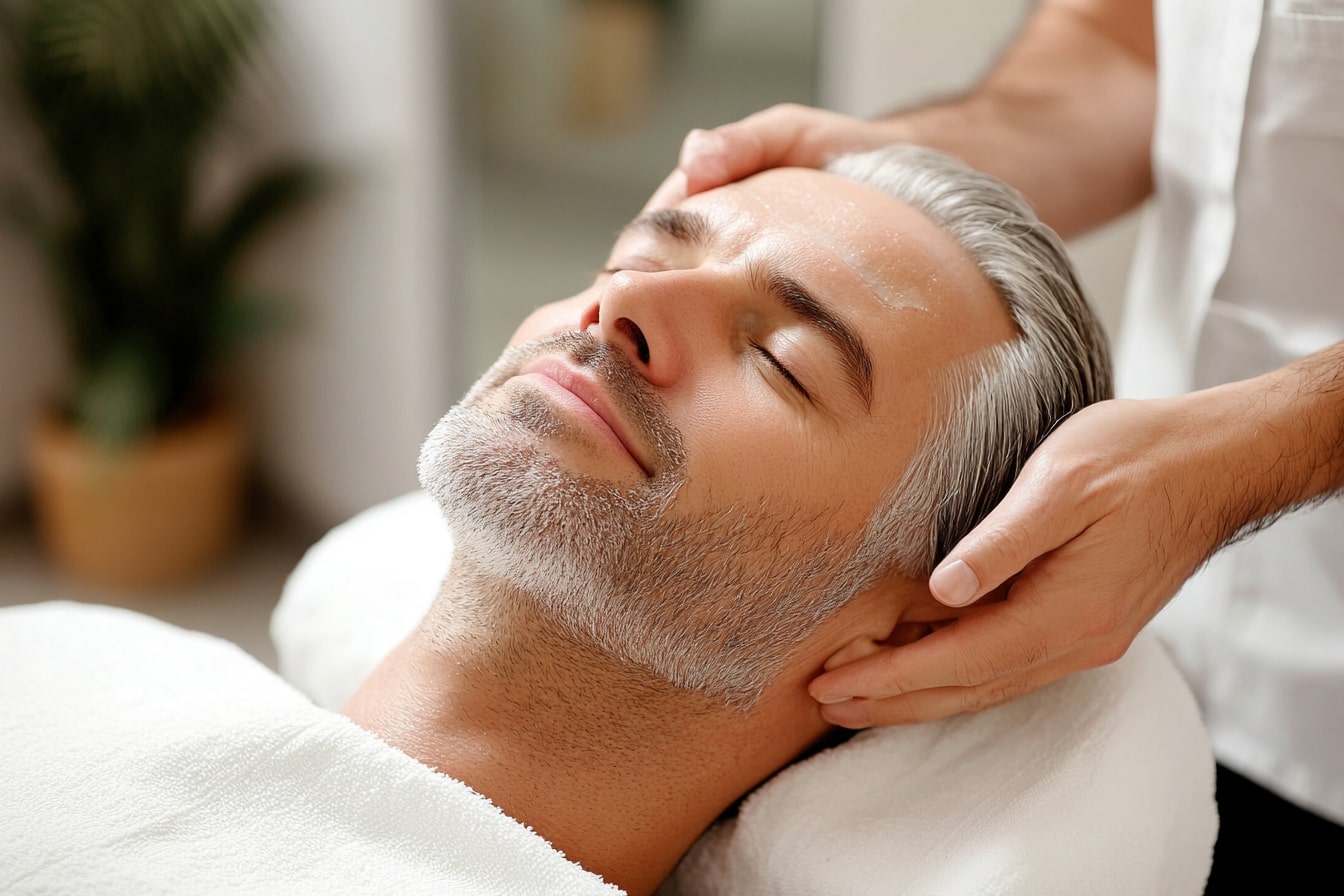Natural Remedies for Insomnia in 2026: Effective Tips for Better Sleep
Struggling with sleepless nights can significantly impact your quality of life. As we look toward 2026, natural approaches to managing insomnia continue to gain recognition alongside conventional treatments. This article explores evidence-based natural remedies, from time-tested herbal solutions to innovative sleep hygiene practices that can help you achieve more restful nights without heavy reliance on medication.

Insomnia affects millions worldwide, disrupting not just sleep but overall health and daily functioning. While pharmaceutical interventions remain common, many people are turning to natural alternatives that address the root causes of sleep disturbances. As research advances, these natural approaches are becoming increasingly refined and targeted. By 2026, we expect to see even more evidence supporting various non-pharmaceutical interventions that can help restore healthy sleep patterns naturally. This article explores current and emerging natural remedies for insomnia, offering practical solutions for those seeking better sleep.
Understanding Insomnia and Its Causes
Insomnia is characterized by difficulty falling asleep, staying asleep, or experiencing non-restorative sleep despite adequate opportunity for rest. It can be short-term (acute) or chronic, lasting months or even years. The condition stems from various factors, including psychological issues like stress, anxiety, and depression; medical conditions such as chronic pain or respiratory problems; lifestyle choices including caffeine consumption and irregular sleep schedules; and environmental factors like noise, light, or uncomfortable sleeping temperatures.
By 2026, research is expected to provide deeper insights into insomnia’s neurological mechanisms. Current understanding suggests disruptions in the brain’s sleep-wake regulation systems, involving neurotransmitters like GABA, serotonin, and melatonin. This improved understanding is helping develop more targeted natural interventions that address specific sleep disruption patterns rather than generic solutions.
Herbal Remedies for Sleep: Evidence and Applications
Herbal remedies have been used for centuries to promote sleep, with modern research increasingly validating their efficacy. Valerian root continues to be among the most studied herbs for insomnia, with research suggesting it may increase GABA levels in the brain, promoting relaxation and sleep. By 2026, standardized extracts with consistent active compounds are likely to become more widely available.
Chamomile remains popular for its gentle sedative effects, containing apigenin that binds to benzodiazepine receptors in the brain. Passionflower shows promise for addressing anxiety-related insomnia, while lemon balm has demonstrated benefits for improving sleep quality and reducing nighttime awakenings. Ashwagandha, an adaptogenic herb, is gaining recognition for addressing stress-induced sleep disturbances by modulating cortisol levels.
Emerging research is also exploring combinations of these herbs that may work synergistically, potentially offering more effective relief than single herbs alone. By 2026, we anticipate more standardized herbal formulations specifically designed for different insomnia patterns, from difficulty falling asleep to early morning awakening.
Essential Oils for Relaxation and Sleep Promotion
Aromatherapy using essential oils provides another natural approach to improving sleep quality. Lavender oil stands as the most researched essential oil for sleep, with studies demonstrating its ability to increase slow-wave sleep and improve overall sleep quality. The compound linalool in lavender appears to interact with GABA pathways, producing calming effects without the side effects of many sleep medications.
Other beneficial oils include bergamot, which reduces heart rate and blood pressure while decreasing anxiety; sweet marjoram, which has shown sedative properties; and sandalwood, which can help maintain deeper sleep stages. By 2026, we expect to see more sophisticated delivery systems for nighttime aromatherapy, including programmable diffusers that release specific oil combinations at different stages of the sleep cycle.
The practice of combining multiple oils in synergistic blends is becoming more scientific, with research examining which combinations best address specific sleep disturbances. For example, lavender combined with bergamot may better address anxiety-related insomnia, while lavender with cedarwood might help with maintaining sleep throughout the night.
Home Remedies and Sleep Hygiene Practices
Sleep hygiene—the habits and practices conducive to sleeping well—remains fundamental to addressing insomnia naturally. By 2026, personalized sleep hygiene recommendations based on individual sleep patterns and circadian rhythms will likely become mainstream. Current best practices include maintaining consistent sleep-wake schedules, creating a comfortable sleep environment, limiting screen time before bed, and developing relaxing pre-sleep routines.
Emerging research supports the effectiveness of certain foods and beverages for promoting sleep. Tart cherry juice, rich in melatonin, has demonstrated benefits for both sleep duration and quality. Kiwi fruit consumption has been linked to improved sleep onset and duration, potentially due to its serotonin content. Magnesium-rich foods like spinach, almonds, and pumpkin seeds may help relax muscles and regulate neurotransmitters that promote sleep.
Temperature regulation is gaining attention as a critical factor in sleep quality. Cooling technologies that help maintain optimal sleeping temperatures (typically between 60-67°F or 15-19°C) are becoming more sophisticated and accessible. By 2026, smart bedding that automatically adjusts to body temperature throughout the night may become commonplace.
Mind-Body Approaches for Combating Insomnia
Mind-body techniques are increasingly recognized as effective interventions for insomnia. Cognitive Behavioral Therapy for Insomnia (CBT-I) remains the gold standard non-pharmaceutical treatment, with digital applications making this approach more accessible. By 2026, AI-powered CBT-I programs may offer highly personalized interventions based on individual sleep patterns and psychological profiles.
Mindfulness meditation specifically designed for sleep is showing impressive results in research studies. Regular practice helps calm the overactive mind that often prevents sleep onset. Progressive muscle relaxation and guided imagery techniques continue to demonstrate benefits for reducing the time it takes to fall asleep and improving sleep quality.
Gentle yoga practices, particularly those emphasizing restorative poses and pranayama (breathing techniques), help activate the parasympathetic nervous system, counteracting the stress response that often contributes to insomnia. By 2026, we expect to see more sleep-specific mind-body protocols combining elements from various traditions to address different insomnia presentations.
When to Seek Professional Guidance
While natural remedies can be effective for many people with insomnia, certain situations warrant professional intervention. Persistent insomnia lasting more than a month, insomnia accompanied by other symptoms like chronic pain or mood disturbances, or sleep problems that significantly impact daytime functioning all indicate the need for professional assessment.
By 2026, we anticipate more integrative sleep centers combining conventional sleep medicine with evidence-based natural approaches. These centers may offer comprehensive evaluations including sleep studies alongside assessments of nutritional status, stress levels, and circadian rhythm patterns to develop truly personalized treatment plans.
Healthcare providers increasingly recognize that optimal insomnia treatment often involves combining approaches—perhaps using cognitive behavioral techniques alongside carefully selected herbal remedies and lifestyle modifications. The future of insomnia treatment lies not in choosing between conventional or natural approaches, but in thoughtfully integrating them based on individual needs and preferences.
When considering natural remedies, it’s important to consult with healthcare providers knowledgeable about both conventional and complementary approaches. This is especially crucial if you’re taking medications, as some herbs can interact with pharmaceutical drugs. A qualified healthcare provider can help you navigate these considerations safely.
As we look toward 2026 and beyond, the treatment of insomnia will likely become increasingly personalized, drawing from both time-tested natural remedies and emerging science to help restore the precious gift of restful sleep.
This article is for informational purposes only and should not be considered medical advice. Please consult a qualified healthcare professional for personalized guidance and treatment.




